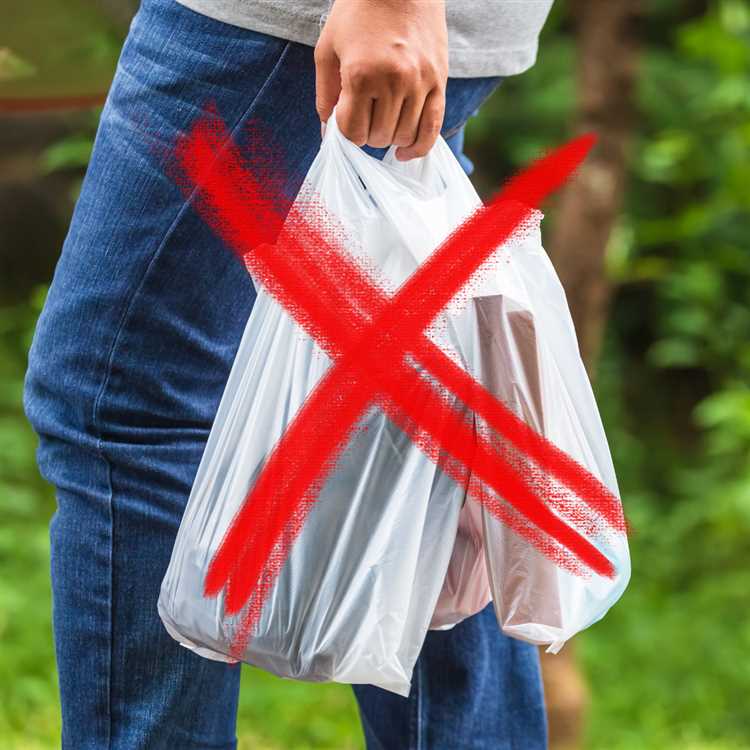
In recent years, the movement to ban single-use plastic bags has gained momentum, with communities and governments around the world taking action to reduce plastic waste and its environmental impact. Grassroots activism has played a significant role in driving this change, with individuals and organizations working tirelessly to raise awareness and advocate for the implementation of plastic bag bans.
Plastic bags have long been a symbol of our throwaway culture, with billions of bags used and discarded each year. These bags are not only an eyesore on our landscapes and waterways, but they also have a devastating effect on wildlife. Animals often mistake plastic bags for food, leading to choking, intestinal blockages, and death.
Recognizing the urgency of the problem, grassroots activists have mobilized to educate the public about the environmental impact of plastic bags. Through public campaigns, protests, and educational programs, these activists have successfully raised awareness and encouraged individuals to ditch single-use bags in favor of reusable alternatives.
The impact of grassroots activism can be seen in the growing number of communities and governments that have implemented plastic bag bans. From large cities to small towns, bans on single-use plastic bags have become increasingly common. This has led to a significant reduction in the use of plastic bags and a corresponding decrease in plastic waste. Additionally, the implementation of these bans has sparked a wider conversation about the need for sustainable packaging and the importance of reducing our reliance on single-use plastics.
While the road to eliminating plastic bags entirely is still ongoing, grassroots activism has played a crucial role in pushing for change and creating awareness about the environmental consequences of plastic bag use. Through grassroots activism, individuals have the power to make a difference and contribute to a cleaner, more sustainable future.
- The Environmental Consequence of Plastic Bags
- The Rise of Grassroots Activism
- Government Response: Plastic Bag Bans
- Economic Implications of Plastic Bag Bans
- Impact on Businesses
- Impact on Consumers
- The Effect on Consumer Behavior
- Innovative Alternatives to Plastic Bags
- Q&A:
- What is the impact of plastic bag ban on the environment?
- How does grassroots activism contribute to banning plastic bags?
- What are the alternatives to plastic bags?
- Do plastic bag bans have economic impacts?
- How effective are plastic bag bans in reducing plastic pollution?
- What is the impact of plastic bag bans?
The Environmental Consequence of Plastic Bags
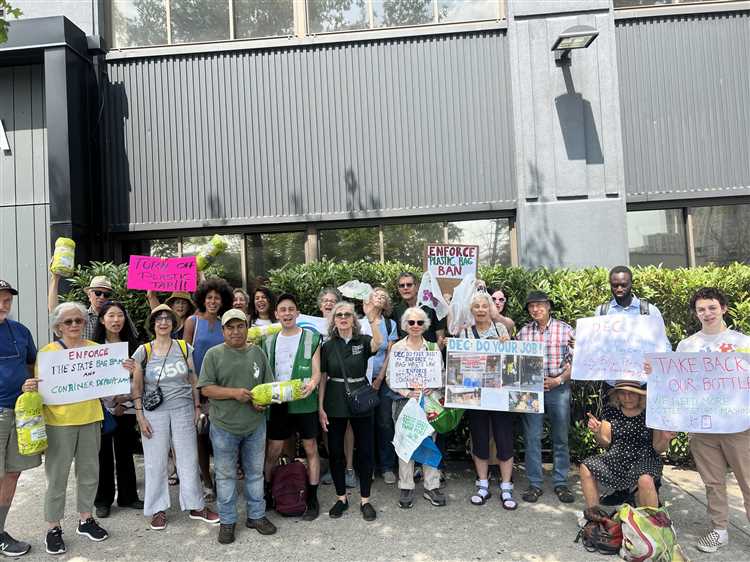
Plastic bags have become a significant environmental concern across the globe. These bags are made from non-biodegradable materials, such as polyethylene, which can take hundreds of years to decompose. As a result, they accumulate in landfills, clog waterways, and pose a threat to wildlife.
When plastic bags end up in landfills, they contribute to the formation of greenhouse gases, such as methane. Methane is a potent greenhouse gas that contributes to climate change and global warming. Additionally, the production of plastic bags requires the extraction of fossil fuels, further contributing to greenhouse gas emissions.
| Environmental Consequences of Plastic Bags | Impact |
|---|---|
| Pollution of Land and Water | Plastic bags litter landscapes and water bodies, harming ecosystems and wildlife. |
| Threat to Marine Life | Marine animals often mistake plastic bags for food, leading to ingestion and entanglement. |
| Disruption of Food Chains | Plastic bags can enter food chains when ingested by smaller organisms, which can have cascading effects on larger species. |
| Destruction of Natural Resources | The production of plastic bags requires the use of non-renewable resources, such as oil and gas. |
Grassroots activism against plastic bags aims to address these environmental consequences. By advocating for bans on single-use plastic bags and promoting reusable alternatives, activists hope to reduce the negative impact of plastic bags on the environment and create a more sustainable future.
The Rise of Grassroots Activism
Over the past decade, there has been a significant rise in grassroots activism surrounding the issue of plastic bag consumption and its impact on the environment. Grassroots activism refers to the efforts of everyday individuals coming together to create change from the bottom up, rather than relying on larger organizations or government bodies to address the issue.
This grassroots movement has gained momentum due to the increasing awareness of the negative environmental impacts of single-use plastic bags. Activists have raised concerns about the excessive waste generated by these bags, their contribution to pollution, and their harmful effects on wildlife and ecosystems. They argue that alternatives, such as reusable bags or biodegradable alternatives, should be embraced to reduce the reliance on plastic bags.
Grassroots activists have taken a variety of actions to raise awareness and advocate for change. They organize educational campaigns and community clean-up events to highlight the issue and gather support. Social media has also played a significant role in mobilizing activists, allowing them to share resources, organize events, and connect with like-minded individuals across the globe.
These grassroots efforts have successfully led to the implementation of plastic bag bans in many cities and countries around the world. By putting pressure on policymakers and engaging with local communities, activists have been able to enact change at a local level, leading to broader shifts in public opinion and government policy.
However, it is important to note that grassroots activism is not without its challenges. Activists often face resistance from those who are resistant to change or skeptical about the environmental impact of plastic bags. Additionally, efforts to implement bans or stricter regulations may face pushback from industries or businesses that depend on the production or distribution of plastic bags. Nevertheless, grassroots activists have persevered and continue to make an impact.
Overall, the rise of grassroots activism surrounding the plastic bag issue serves as a testament to the power of individuals coming together to create change. By mobilizing communities and raising awareness, grassroots activists have played a crucial role in shifting societal attitudes towards plastic bag consumption and encouraging the adoption of more sustainable alternatives.
Government Response: Plastic Bag Bans
The issue of plastic bag pollution has gained attention from governments around the world, leading to the implementation of plastic bag bans in many countries and regions. These bans have been seen as a proactive response to the environmental problems caused by plastic bags, and have been instrumental in reducing the usage and disposal of plastic bags.
One example of a government response to plastic bag pollution is the ban on plastic bags in California. In 2014, the state of California passed legislation that banned the distribution of single-use plastic bags in large retail stores. This law was implemented to reduce litter, protect wildlife, and promote a shift towards more sustainable and reusable alternatives.
Similarly, other governments have followed suit and implemented their own plastic bag bans. For example, in 2007, the country of Rwanda became one of the first African nations to ban plastic bags altogether. This ban has been highly successful in reducing plastic bag pollution and has had a positive impact on the environment.
Government response to plastic bag pollution has not been limited to bans alone. Many governments have also implemented policies to encourage the use of reusable bags and promote recycling. For example, some governments have instituted taxes and fees on single-use plastic bags, creating an economic incentive for consumers to use reusable alternatives. This approach aims to change consumer behavior by making disposable bags a less attractive option.
Overall, government response to plastic bag pollution has been vital in raising awareness and addressing the issue at a systemic level. Plastic bag bans, along with other policies and initiatives, have been instrumental in reducing plastic bag consumption and minimizing their harmful impact on the environment.
Economic Implications of Plastic Bag Bans
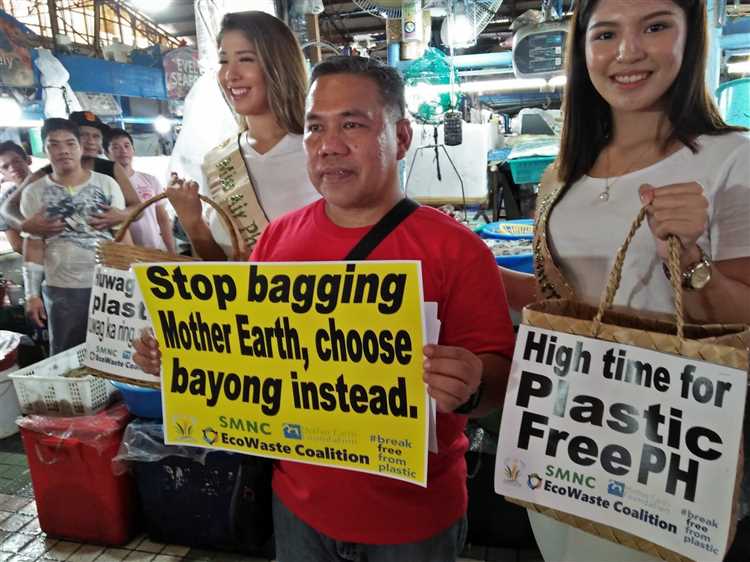
Plastic bag bans have had significant economic implications for both businesses and consumers. While the environmental benefits of these bans are undeniable, there are also economic considerations that need to be taken into account.
Impact on Businesses
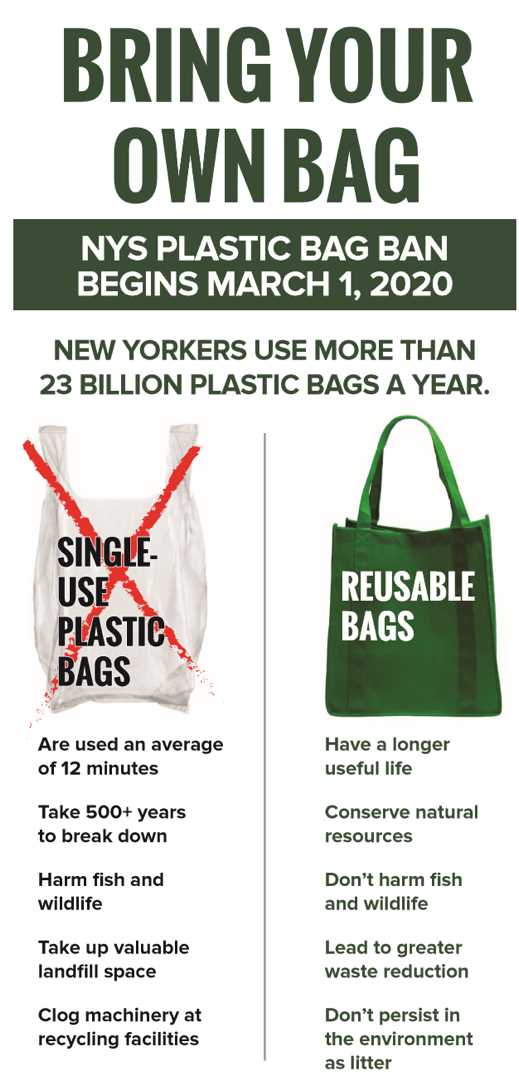
For businesses, the implementation of plastic bag bans can lead to increased costs. Retailers may need to find alternative packaging options and invest in reusable bags or paper bags, which can be more expensive than plastic bags. This can particularly affect small businesses with limited resources.
Additionally, businesses may also experience a decrease in sales. Some consumers may be deterred from making purchases if they do not have a convenient way to carry their items home. This can especially impact impulse buys, where the ease of carrying items can influence consumers’ decision-making.
However, there are also potential benefits for businesses. By implementing plastic bag bans, businesses can portray themselves as environmentally responsible and attract customers who prioritize sustainability. This can lead to increased brand loyalty and positive perception among consumers.
Impact on Consumers
Plastic bag bans can also affect consumers’ shopping habits and expenses. While some consumers may be willing to pay for reusable bags or paper bags, others may choose to bring their own bags or opt for no bags at all. This can require a change in behavior and habits, particularly for those accustomed to relying on plastic bags.
However, over time, consumers can also save money by switching to reusable bags. Many retailers offer incentives, such as discounts or points, for using reusable bags. Additionally, the durability of reusable bags means that consumers do not need to constantly purchase new bags, resulting in long-term cost savings.
| Benefits | Drawbacks |
|---|---|
| Environmental sustainability | Increased costs for businesses |
| Brand loyalty and positive perception | Potential decrease in sales |
| Long-term cost savings for consumers | Change in consumer behavior |
Overall, plastic bag bans have both positive and negative economic implications. While businesses may face increased costs and potential loss of sales, they can also benefit from improved brand reputation. Consumers may experience a change in shopping habits, but they can ultimately save money in the long run. Consideration of these economic factors is crucial when implementing plastic bag bans to ensure a balanced approach.
The Effect on Consumer Behavior
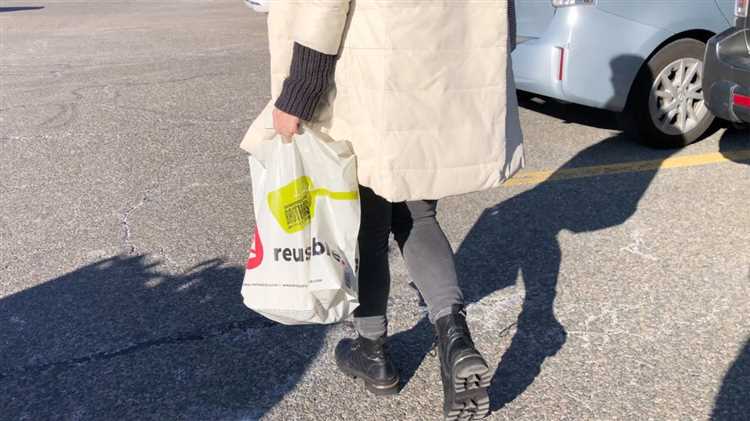
The implementation of a plastic bag ban and grassroots activism have had a significant impact on consumer behavior. With the introduction of the ban, consumers are forced to find alternatives to plastic bags, leading to changes in their shopping habits.
One of the most notable effects has been the increased use of reusable bags. Consumers have become more conscious of the environmental impact of plastic bags and are actively seeking out reusable options. This shift in behavior has led to a surge in the demand for reusable bags, with many retailers offering a variety of options to cater to this growing market.
In addition to the increased use of reusable bags, consumers have also started to prioritize products with eco-friendly packaging. With a heightened awareness of the harmful effects of plastic pollution, consumers are actively looking for products that come in sustainable packaging materials such as cardboard or biodegradable materials. This change in consumer preference has prompted many companies to reevaluate their packaging strategies and invest in sustainable alternatives.
Furthermore, the plastic bag ban and grassroots activism have also had an impact on consumer attitudes towards single-use plastics in general. Many consumers are now more conscious of their overall plastic consumption and are actively seeking ways to reduce it. This has led to a decrease in the use of other single-use items such as plastic cutlery, straws, and bottles.
Overall, the plastic bag ban and grassroots activism have not only changed consumer behavior in relation to plastic bags but have also sparked a broader movement towards more sustainable consumer choices. As consumers become increasingly aware of the environmental consequences of their actions, they are making conscious decisions to reduce their plastic footprint and support businesses that align with their values.
Innovative Alternatives to Plastic Bags
As the movement to ban plastic bags gains momentum, it has become increasingly important to find innovative alternatives that are both environmentally friendly and practical for everyday use. Thankfully, there are several promising options available.
One such alternative is the use of reusable cloth bags, which are made from natural materials like cotton or hemp. These bags can be sturdy and durable, and can often carry more weight than a typical plastic bag. Many stores now offer reusable bags for purchase, and some even provide discounts or incentives for using them.
Another option is biodegradable bags, which are designed to break down through natural processes over time. These bags are often made from plant-based materials like cornstarch or vegetable oils, and can be composted along with organic waste. While not as durable as plastic, biodegradable bags are a step in the right direction towards reducing plastic waste.
Furthermore, there has been research and development into creating bags from alternative materials such as mushrooms or algae. These options are still in the experimental stage, but hold promise for a future where sustainable materials can replace single-use plastic bags.
Ultimately, finding alternatives to plastic bags requires a combination of consumer demand, grassroots activism, and innovative thinking. By supporting and advocating for such alternatives, individuals can contribute to reducing the negative impact of plastic bags on the environment.
Q&A:
What is the impact of plastic bag ban on the environment?
The impact of plastic bag ban on the environment is highly positive. By banning plastic bags, we can significantly reduce the amount of plastic waste that ends up in landfills and oceans, reducing pollution and protecting wildlife.
How does grassroots activism contribute to banning plastic bags?
Grassroots activism plays a crucial role in banning plastic bags. Activists raise awareness about the negative impacts of plastic bags, advocate for government action, and encourage individuals to adopt reusable bags. This collective effort puts pressure on policymakers to implement laws and regulations to ban plastic bags.
What are the alternatives to plastic bags?
There are several alternatives to plastic bags. Reusable bags made of materials like canvas, hemp, or jute are eco-friendly and durable. Paper bags, although not as durable as reusable bags, are biodegradable and can be recycled. Some stores offer compostable bags made from materials like cornstarch. Using these alternatives can help reduce the consumption of plastic bags.
Do plastic bag bans have economic impacts?
Plastic bag bans can have both positive and negative economic impacts. While businesses selling plastic bags may experience a decline in profits initially, the ban can create opportunities for the production and sale of reusable bags. Additionally, the cost of cleaning up plastic waste and the negative impacts on tourism, fishing, and agriculture industries can be reduced, benefiting the economy in the long run.
How effective are plastic bag bans in reducing plastic pollution?
Plastic bag bans have proven to be effective in reducing plastic pollution. Studies have shown a significant decrease in the usage of plastic bags and a decrease in the amount of plastic waste found in landfills, rivers, and oceans in areas with bans. However, it is important to note that implementing a ban alone may not completely solve the plastic pollution problem, and it should be accompanied by other measures like promoting recycling and reducing overall plastic consumption.
What is the impact of plastic bag bans?
Plastic bag bans have a significant impact on reducing plastic waste and pollution. By restricting the use of single-use plastic bags, these bans encourage individuals to bring their own reusable bags or opt for more sustainable alternatives. This results in a decrease in the amount of plastic bags that end up in landfills, waterways, and natural environments. Additionally, plastic bag bans promote awareness about the negative environmental consequences of plastic use and encourage a shift towards more eco-friendly practices.